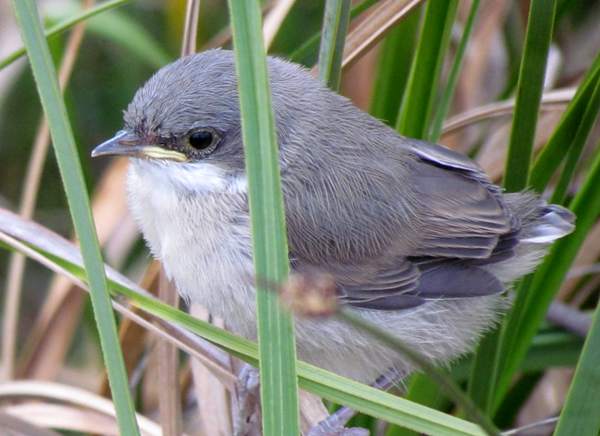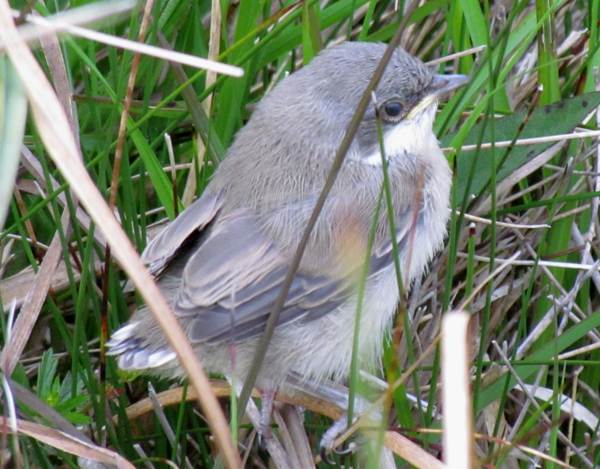Sylvia curruca - Lesser Whitethroat
Phylum: Chordata - Class: Aves - Order: Passeriformes - Family: Sylviidae
Identification - Distribution - Lifecycle - Food - Predators - Reference Sources

This handsome summer visitor to Britain is not a common sight, as it rarely leaves the cover of shrubs and hedgerows. It is a warbler, and as the common name suggests it is noticeably smaller than its close relative the Whitethroat.
Identification
Dark cheek feathers contrast with the pale throat and the white outer feathers of its tail that are clearly visible only when the bird is in flight.

Distribution
Lesser Whitethroats can be seen in lowland parts of England, Wales and southern Scotland, where the first visitors arrive in April. They breed here but begin leaving from the end of July, most of them having departed by mid-October, so they are in Britain for less than half of the year.
Reproduction
The nest, which is built low down in shrub by the male and the female bird, consists of a cup of fine twigs and coarse grass and lined with fine grass, roots and hair. Lesses Whitethroat eggs are smooth and glossy white or pale creamy with a few blotches of grey or olive. Male and female birds take turns to incubate the eggs, and both gather food for their young.
Feeding
In spring and summer a Lesser Whitethroat's diet consists mainly of insects, but as autumn approaches these little birds fatten themselves up on berries prior to migrating to their winter feeding grounds in north-east Africa